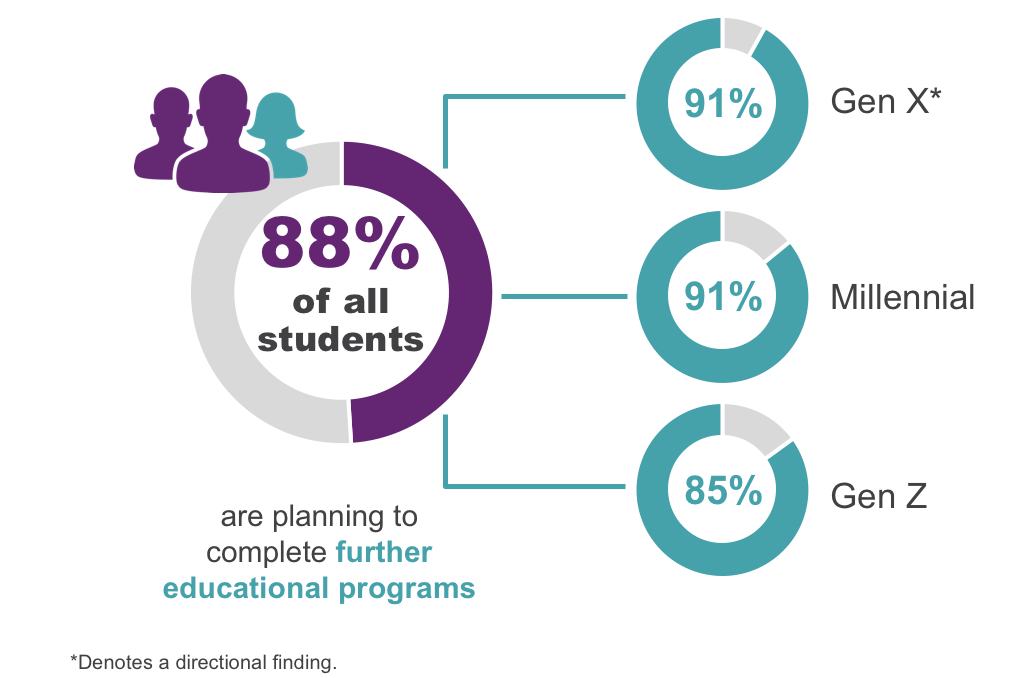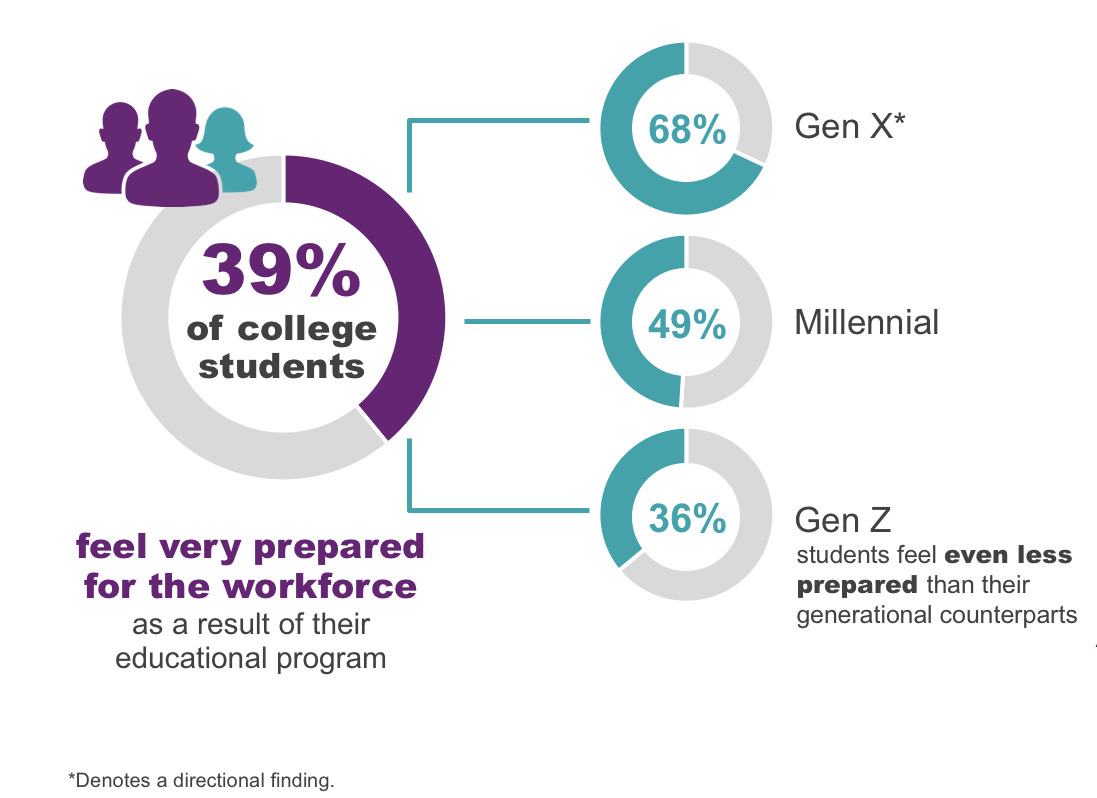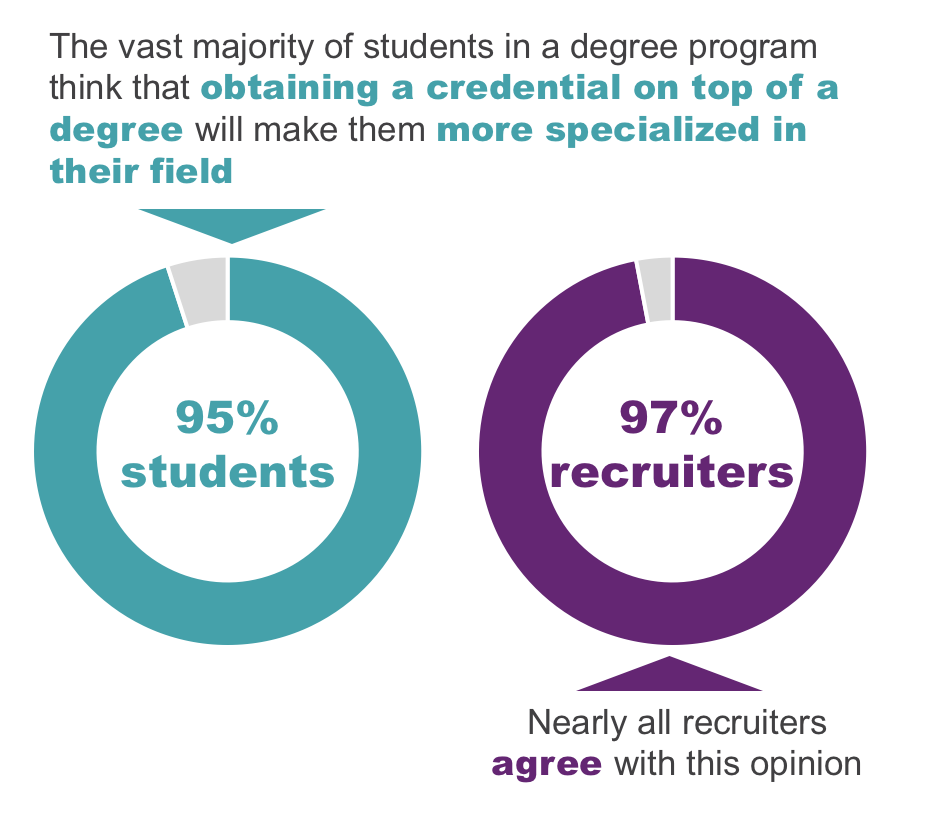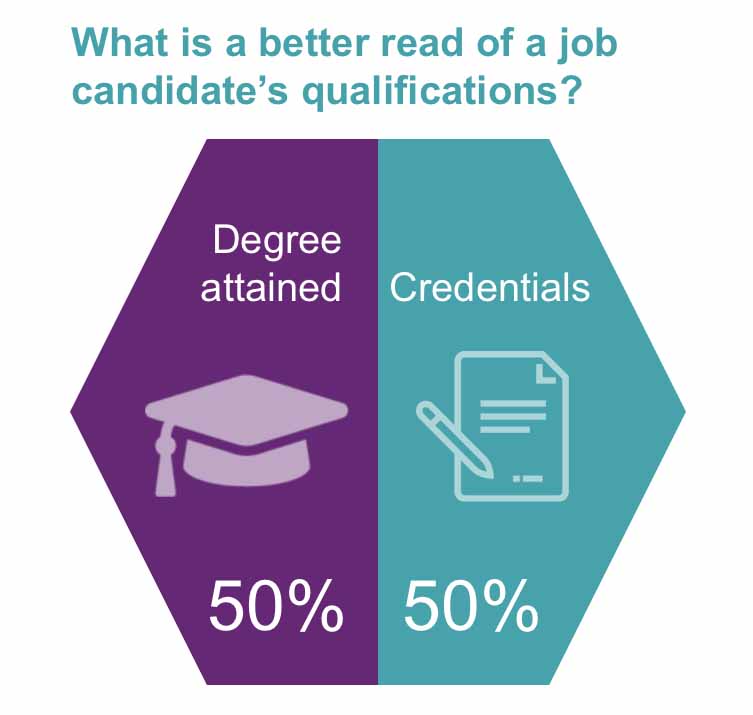Beyond the College Degree:
The role of microcredentials in continuing education and workforce development

To keep employees productive and up to speed, companies and their workers are looking more often to micro-credentials — presenting higher education with a fresh opportunity for growth.
The era when American employers could count on an endless stream of potential workers to fill job slots is over.
With the U.S. unemployment rate under 4 percent and demographic research projecting a decline in future workers, companies need to find ways to make their current employees more productive — and keep them on the job for longer.
To do all that, more and more companies are paying workers to take on bite-sized courses that improve their on-the-job skills. While the college degree remains a hotly desired commodity in the job market, businesses are encouraging workers to earn additional credentials that keep them up to speed about new technology and teach better methods for performing their jobs.
Called micro-credentials, these programs include apprenticeships, badges, boot camps, certificates, and other slices of education that might take only a few hours or a few weeks to complete. The popularity of these learning experiences is on the rise — and not only with companies. Employees who realize they need to continually upgrade their skills to thrive in a competitive market see their value too.
While both companies and workers gain from the increases in productivity that come from more training and stronger credentials, the biggest winner could be higher education, a recent survey conducted by Ellucian, the world’s leading provider of software services for colleges and universities, suggests.
Continuing Education Becomes the Norm

The survey, called “Credential clout: How higher ed can prepare for an evolving job market,” questioned 500 students aged 18-45 who are enrolled in a credential or degree program in the U.S. along with 500 recruiters and company hiring managers to learn about their attitudes toward non-degree learning opportunities.
It found that a staggeringly high number of students — 88 percent — say they will seek more training after they complete their current educational program. Almost all of them believe that earning an additional credential on top of a degree will make them more specialized in their field.
“It’s telling that so many students plan to continue their education after college — and so quickly after they earn their degree,” says Diana Oblinger, President Emeritus of EDUCAUSE, and a board member at Ellucian since 2016. (Many respondents anticipate pursuing more training within two years of completing their educational program.) “I don’t recall seeing percentages that high before. Students realize how fast the world is moving. They have to move fast to keep up.”
Nearly two in three students surveyed say they enrolled in their college program to improve their job prospects, yet only 39 percent feel that a degree alone makes them “very prepared” for the workforce.
Across the country, workers are taking charge of their own education — to the betterment of themselves and their companies. “Students who invest in their own learning are more likely to be high performers,” Oblinger says.
Micro-learning experiences have several advantages over full-fledged degree programs, she adds. They fit better with the schedules that working students must maintain. Shorter and smaller bits of training may be less expensive and less likely to crimp a worker’s budget like a full college course would — an important consideration when employers won’t cover the cost of additional education.
But employers, seeing the value of such experiences, are more willing than ever to do so.
“We know from studies that the return on investment when employers offer workers higher-education support is high,” Oblinger says. “Those who receive it tend to stay with their company longer.”


Credentials Gaining Importance

Nearly all recruiters (97 percent) say that credentials make workers more specialized better at their jobs. “What we’re seeing is that employers see furthering education as a way to keep up with the rapidly changing workplace and maintain viability,” says Katie Lynch-Holmes, director of Global Ellucian Enablement.
When it comes to judging the value of a job candidate’s qualifications, half of recruiters report that credentials are a strong measure — the same percentage who view degrees that way. Credentials will gain in importance during the next five years as they look to fill job posts, a strong majority of them say.
Though credentials have been around for “a very long time,” Oblinger says, they may have found their era. “They’re becoming more important because the world is changing faster and faster. More upskilling is required more often.”
Colleges, faced with similar demographic challenges as businesses, have several reasons for developing workforce-centered micro-learning programs — including increasing their operating revenue, strengthening partnerships with corporations/industry leaders, diversifying student population, and supporting the local economy. “These credentialing programs offer a low-cost, diverse, flexible, job-specific option that is beneficial to both institutions and students,” says Lynch-Holmes.
Already, many universities have found ways to reach busy adult workers inexpensively via online learning experiences. Some institutions are going a step further, partnering with local companies to employ a credentialing approach to address a specific skill set gap. In the Washington D.C. metro area, for example, a dozen universities and 14 companies have partnered to develop a “generalist digital-technology credential” to meet the need for digital skills. And community colleges, already geared up with several types of continuing-ed programs, have also begun to launch new micro-credentialing efforts.
“This is a big opportunity for higher education,” Oblinger says. Focusing on credentialing programs “gives people a chance to improve where they are in the workforce and to lead better lives,” she concludes.
To read the entire Credential Clout survey, please click on the image below.





